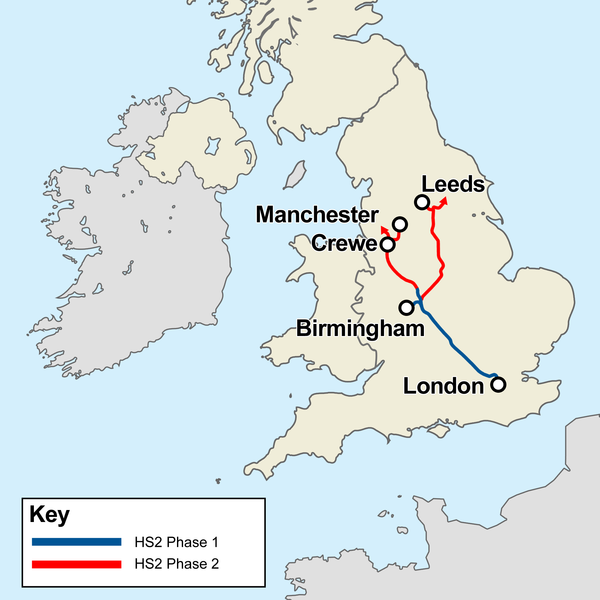The British government recently reviewed the ever-escalating sums for the proposed HS2 high speed passenger rail connection that began at some £30 billion, then climbed to £50 billion, then £80 billion, and the latest estimate is up to £110 billion. Even by other countries’ high speed rail boondoggles, that is a breathtaking cost escalation. If, as it should, the government cancels the HS2 project, what happens to the money that was budgeted for the fiasco?
The figures used to justify HS2 were “fiddled” and that the project is most unlikely to deliver value for money — that’s the verdict of Lord Berkeley, the deputy chairman of the recent review into the project. He’s right of course and not solely because he’s repeating what I argued more than a year ago.
HS2 will make the country worse off and should be stopped as soon as possible. The government can mourn the money wasted and go off and do something else. Some suggest the HS2 money should be taken and spent on northern railways. Or as Lord Berkeley himself would prefer, on commuter lines in the Midlands.
But those offering these suggestions are making a very fundamental mistake: the real question is not which project most deserves this slab of funding, but whether the state should be spending this money at all.
This is not to say government should not be involved in funding any big infrastructure — everyone except the most hardcore anarchists accepts that state involvement in the economy is sometimes appropriate. But when it does intervene, it ought to be because there is an ironcast case for the betterment of the general population. That’s equally true whether we are talking about taxing to spend money now, or borrowing on the assumption that future benefits will pay back the debt incurred.
So, where does this leave the HS2 money? At some point it was decided that spending £30 billion, £50 billion, £80 billion or now as much as £110 billion on some nice choo-choos was an idea that justified taxing the public. Now it’s clear and obvious that it isn’t. Deciding afterwards that the government must spend all those billions on something else transport-related is missing the point entirely.




